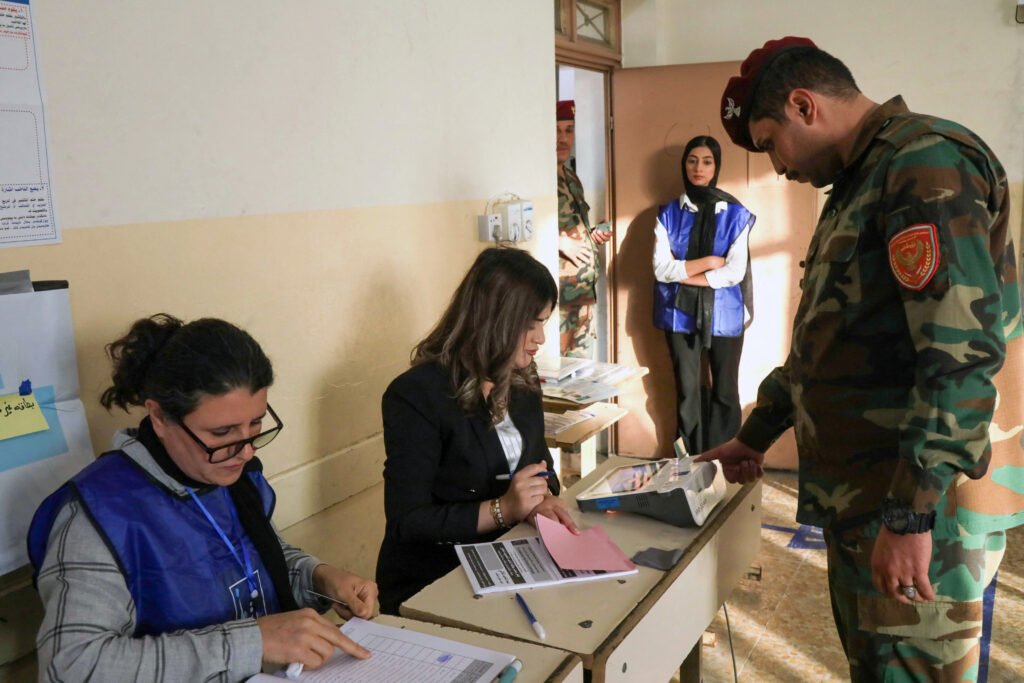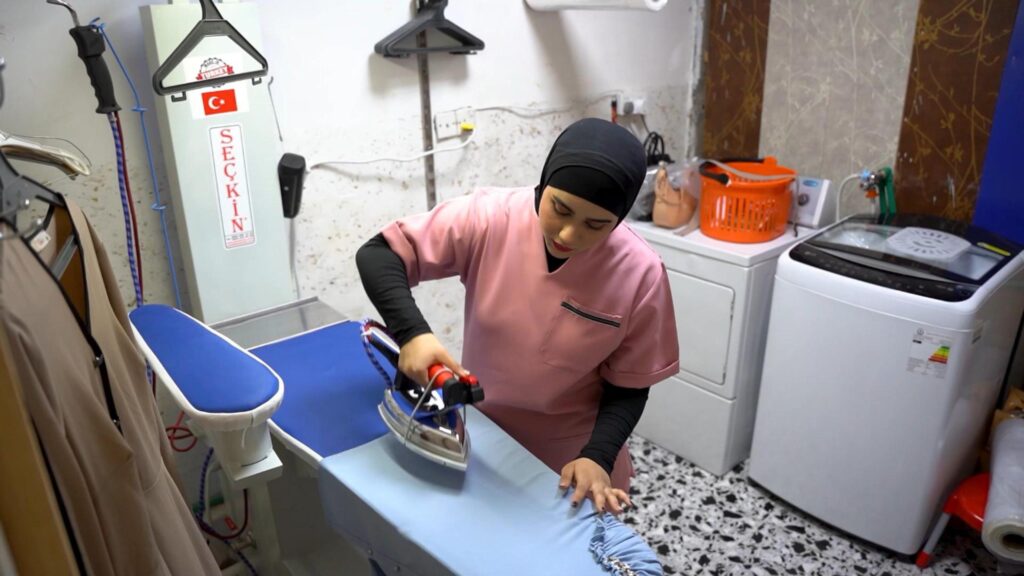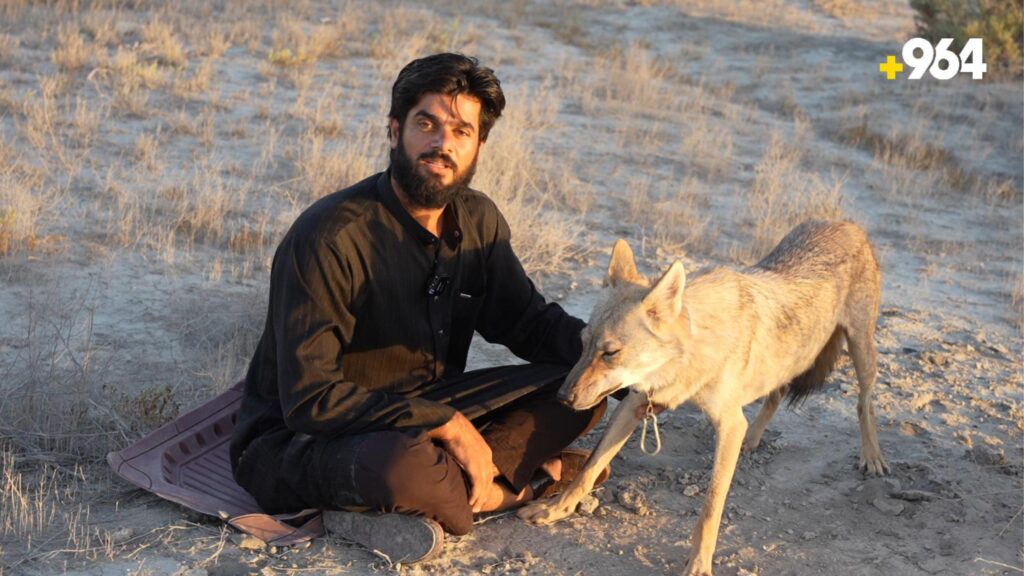Why Muqtada al-Sadr Failed to Reform Iraq

Many observers predicted that Iraq’s elections last October would be a potential turning point in the country’s long struggle to find stability since 2003. Instead, the protracted government formation process has featured political violence against opponents, including tit-for-tat assassinations in the south, bombings of political offices and linked businesses, and even an attempt on the prime minister’s life. It has seen the judiciary weaponized to target opponents with lawsuits and disqualify candidates. Foreign powers, including Iran, have also directly intervened to prevent a change to the system of government.
All of this suggests that change is not on the horizon for Iraq. The country is still stuck in familiar cycles of violence with no clear path out.
Some experts have found this especially disappointing because the election results had initially hinted at change. Shiite populist cleric Muqtada al-Sadr defeated his competitors by a significant margin, winning 73 seats. His rivals from the previous election, the Iran-allied Fatah Alliance, lost 31 seats and now only has 17 seats. His other rival, former Iraqi Prime Minister Nouri al-Maliki’s State of Law Coalition, has only 35 seats. Sadr was widely predicted to play the role of kingmaker.
Many observers predicted that Iraq’s elections last October would be a potential turning point in the country’s long struggle to find stability since 2003. Instead, the protracted government formation process has featured political violence against opponents, including tit-for-tat assassinations in the south, bombings of political offices and linked businesses, and even an attempt on the prime minister’s life. It has seen the judiciary weaponized to target opponents with lawsuits and disqualify candidates. Foreign powers, including Iran, have also directly intervened to prevent a change to the system of government.
All of this suggests that change is not on the horizon for Iraq. The country is still stuck in familiar cycles of violence with no clear path out.
Some experts have found this especially disappointing because the election results had initially hinted at change. Shiite populist cleric Muqtada al-Sadr defeated his competitors by a significant margin, winning 73 seats. His rivals from the previous election, the Iran-allied Fatah Alliance, lost 31 seats and now only has 17 seats. His other rival, former Iraqi Prime Minister Nouri al-Maliki’s State of Law Coalition, has only 35 seats. Sadr was widely predicted to play the role of kingmaker.
Sensing an opportunity for fundamental change, Sadrists called for an end to the consensus government system, where all parties divide the state among themselves at the expense of corruption and stagnation. Sadr instead insisted on a majoritarian government. The key was to exclude longtime rival and Iranian ally Maliki. In its own change of policy, the United States now backs Sadr, seeing his rise as an opportunity to push out Iranian influence and change Iraqi politics.
To reshape Iraqi politics, Sadr’s majoritarian push required an alliance—the Tripartite Alliance—with the Kurdistan Democratic Party (KDP), which has become the strongest Kurdish party, and the al-Siyada bloc, which represents the recently united Sunnis. The alliance passed its first true test, on Jan. 9, when its candidate for speaker of parliament, Mohamed al-Halbousi, won a very clear majority with 200 votes.
But the opposing Coordination Framework led by Maliki and Fatah and backed by Iran still has violence as a hedge. Fatah mobilized its members and fighters to stage protests, blocking key entry points to the government district and judicial institutions. Sadrists soon realized that their armed group—Saraya al-Salam—was no match in terms of manpower and weaponry for a broader armed conflict. With government forces unwilling and unable to officially intervene, the Coordination Framework showcased their coercive power.
Direct violence between Sadrists and Iran-aligned groups, namely Asaib ahl al-Haq (AAH), escalated during the months of government formation. In Maysan, an Iraqi governorate bordering Iran, each side targeted the other, leading to a series of tit-for-tat assassinations of Sadrists and AAH-affiliated local officials. On Nov. 7, 2021, armed groups launched drone strikes on the residence of Iraqi Prime Minister Mustafa al-Kadhimi—perceived to be a close Sadrist ally. For the first time in Iraq since 2003, a sitting prime minister was the target of an assassination attempt. The next day, Kadhimi decided to consult with the Popular Mobilization Forces, an umbrella network of armed groups linked to Fateh, and its allies to de-escalate the situation.
The losing sides also targeted the main parts of Sadr’s Tripartite Alliance. Groups launched attacks against KDP headquarters in Baghdad and Kirkuk, Iraq, as well as against banks and businesses linked to the party. They also attacked Sunni political headquarters in Baghdad and Anbar province, Iraq, and even fired rockets at one of Halbousi’s private residences in Anbar. This violence was successfully used to drive fear into anyone who considered cooperating with Sadr.
Those opposing the Tripartite Alliance also resorted to lawsuits and legal proceedings—working with their allies inside the judiciary—to delay and disrupt the majority government. The day after the election, shocked by the result, Fatah leader Hadi al-Ameri announced he would file complaints alleging voter fraud. This would turn into a lengthy process aimed at discrediting the electoral result.
But while disputing the elections served to delay ratifying the election results, more complicated lawsuits served as an effective way to disrupt Sadr’s alliance itself. When the Tripartite Alliance put up Hoshyar Zebari as its presidential candidate for the majority government, the Coordination Framework worked to bring back old corruption suits that questioned Zebari’s candidacy. Zebari, who was approved by parliament, was disqualified by the judiciary, marking a blow to the push for a majoritarian government.
Working with incumbent President Barham Salih, the Coordination Framework also promoted a legal ruling that decreed the parliament required a two-thirds quorum to have any vote on the presidency. This meant a backroom deal was needed, ensuring the continuation of the consensus government system.
On Feb. 15, the Federal Supreme Court decreed that the Kurdistan Regional Government’s (KRG) oil and gas law was unconstitutional, meaning the central government could annul all KRG oil contracts and also hold Erbil liable for past oil revenues. Although this dispute has gone on for years, many saw the timing of the ruling as direct retaliation against the KDP for its support of the majoritarian government.
The same court struck down the prime minister’s anti-corruption committee as unconstitutional. This effectively put an end to the work of Iraq’s most aggressive anti-corruption unit, which the Sadrists had leveraged to go after Maliki and Fatah rivals.
Iran has historically been an important kingmaker in the formation of Iraqi governments. In 2010, for instance, the Iranians brought foes Sadr and Maliki together soon after the country’s civil war to form a consensus government. This year, Iran was without its key broker, Qasem Soleimani. In the past, Soleimani was fundamental to ensuring consensus. In his place, Esmail Qaani preferred a different approach. He wanted to stay out of the infighting and was willing to accept the Iraqi parties’ wills. This change in approach put Qaani up against other Iranian elements who were more wary of Sadr’s push for majoritarian power.
As months went by with no results, Qaani’s plan crumbled. He was sidelined and became a mere messenger for Iranian Supreme Leader Ali Khamenei, who has now decided to directly intervene. Tehran’s policy was to target all members of the Tripartite Alliance. Khamenei sent Qaani with letters to deliver to the KDP and the Sunnis, discouraging and threatening them for their part in Sadr’s push. Leaders from both the KDP and the Sunni parties confided to the authors that Iran was taking a more active role, which concerned them.
Another concern was the lack of trust in Sadr himself among his own allies. Halbousi and the KDP increasingly believe that Sadr took too large a risk in alienating strong political opponents and their Iranian allies. They also fear that Sadr is not a dependable ally, citing his abandonment of his coalition’s presidential candidate, Zebari, after facing corruption allegations.
Meanwhile, some senior Sadrists are uncomfortable with the KDP alliance on nationalistic grounds, a tension exacerbated by the oil and gas ruling. A senior Sadrist recently indicated to the authors that there was reason to doubt whether the KDP and Sunnis fully understood and bought into Sadr’s political vision.
Sadr has also lost considerable ideological power. There was a time when Sadr had convinced many Iraqis that he was an agent for reform. In 2016, he occupied the Green Zone to protest corruption, even though he had hundreds of close allies linked to it. In the past few years, however, and especially since his movement took a leading role in suppressing a protest movement in October 2019, Sadr has lost his ideological power to convince Iraqis that he is a reformist. Last year, hospital fires that killed well over one hundred people were linked to corruption in Iraq’s Ministry of Health—widely known as a Sadrist-dominated ministry. While he may have won the election, Sadr received less votes than the previous election, and he is increasingly unpopular with younger voters.
Sadr’s attempt to impose his vision of political reform—under the pretense of fundamentally changing the nature of Iraq’s political system—has not worked. Electoral power is only one element of the equation that determines government composition. So Iraq’s seemingly weak consensus-driven system has again proven resilient to change.



